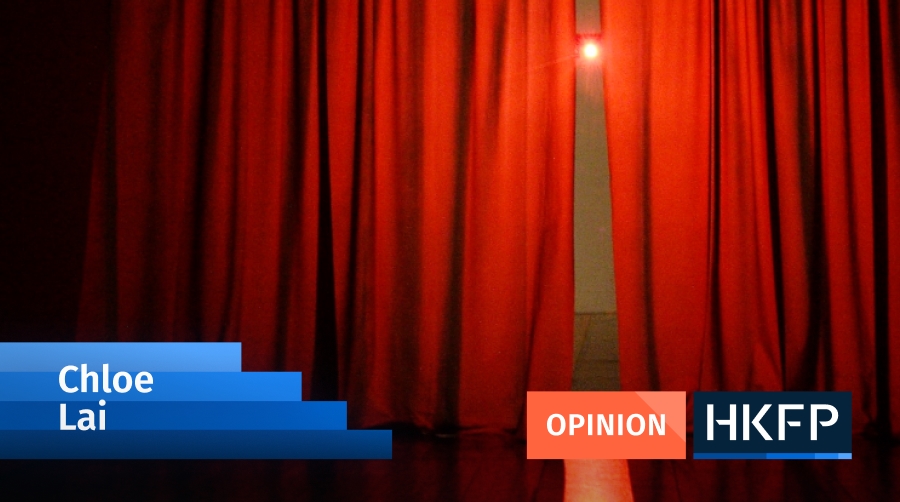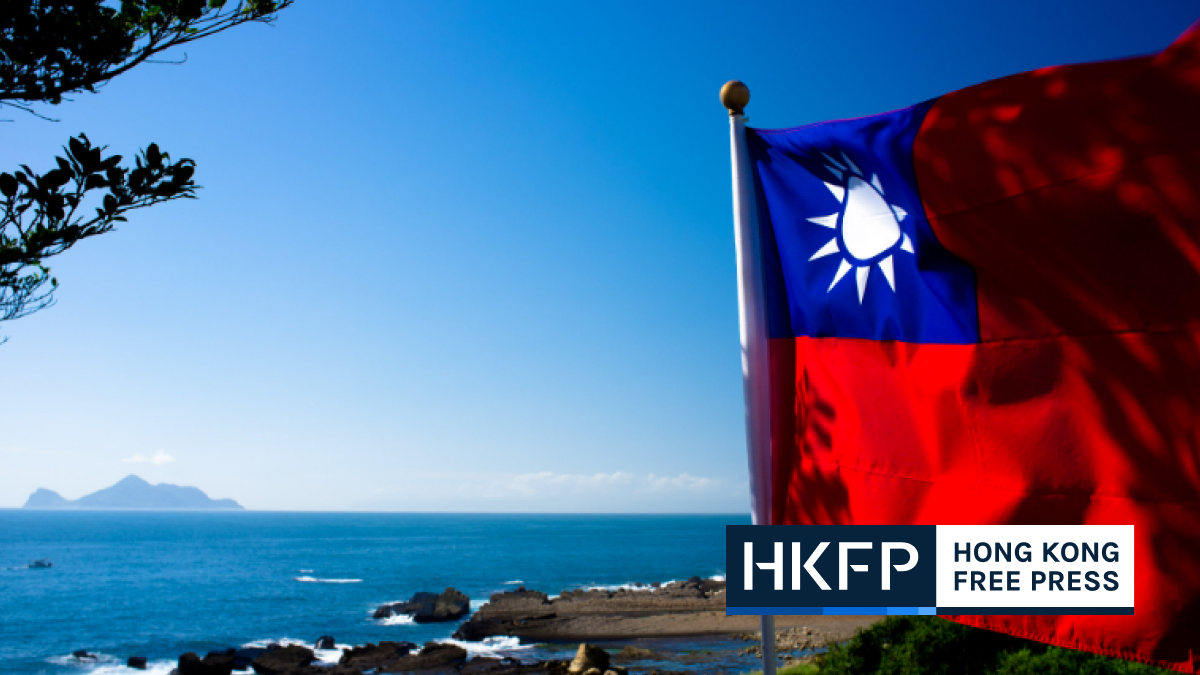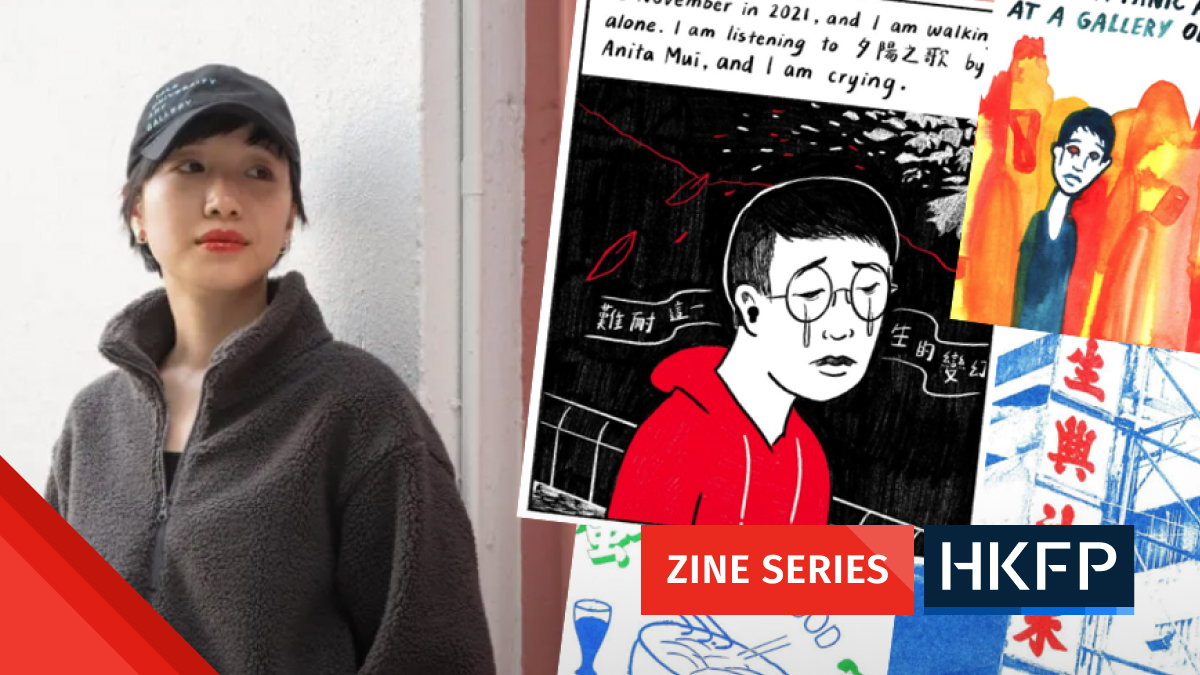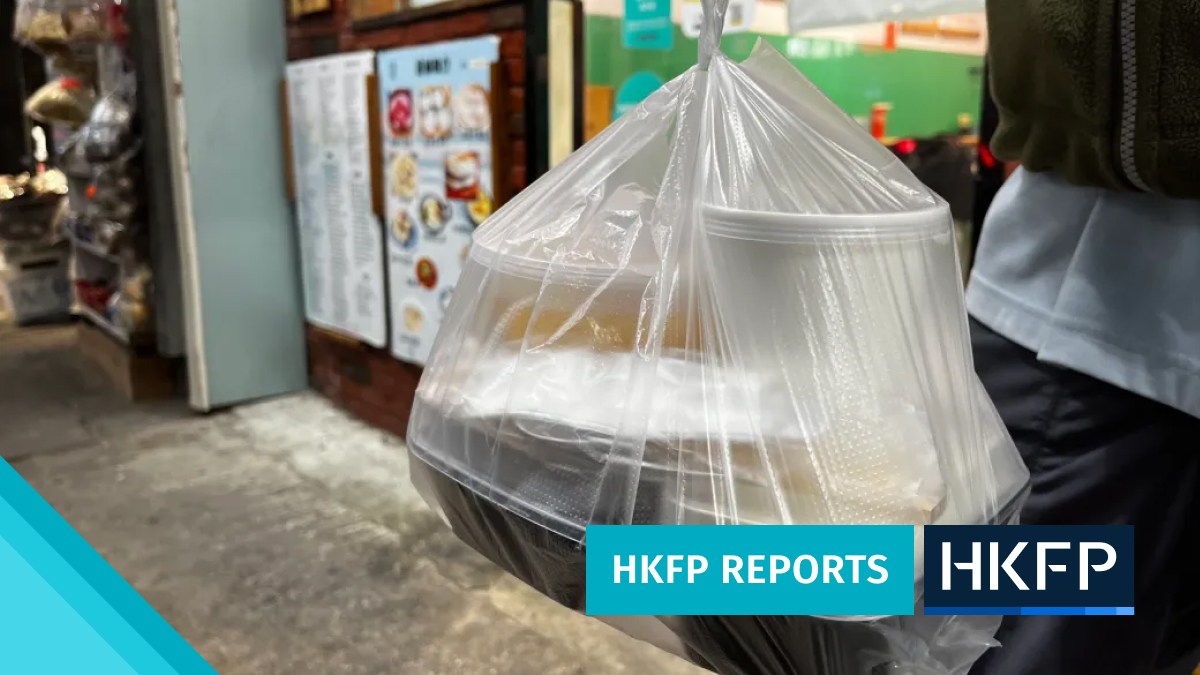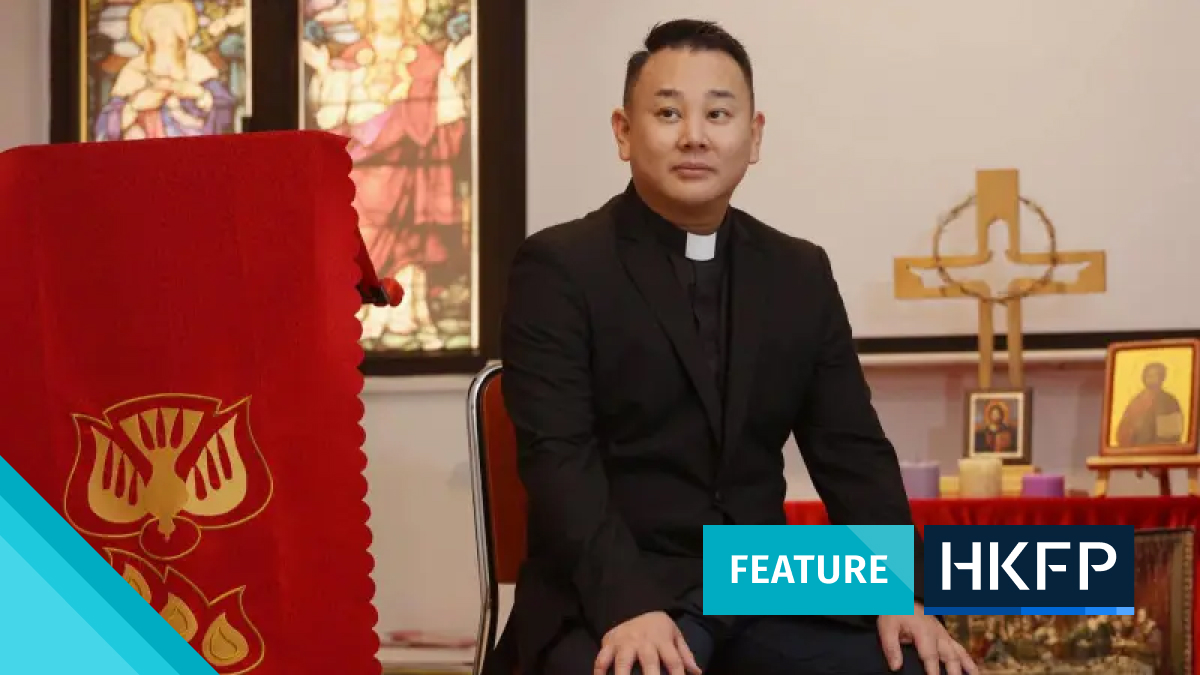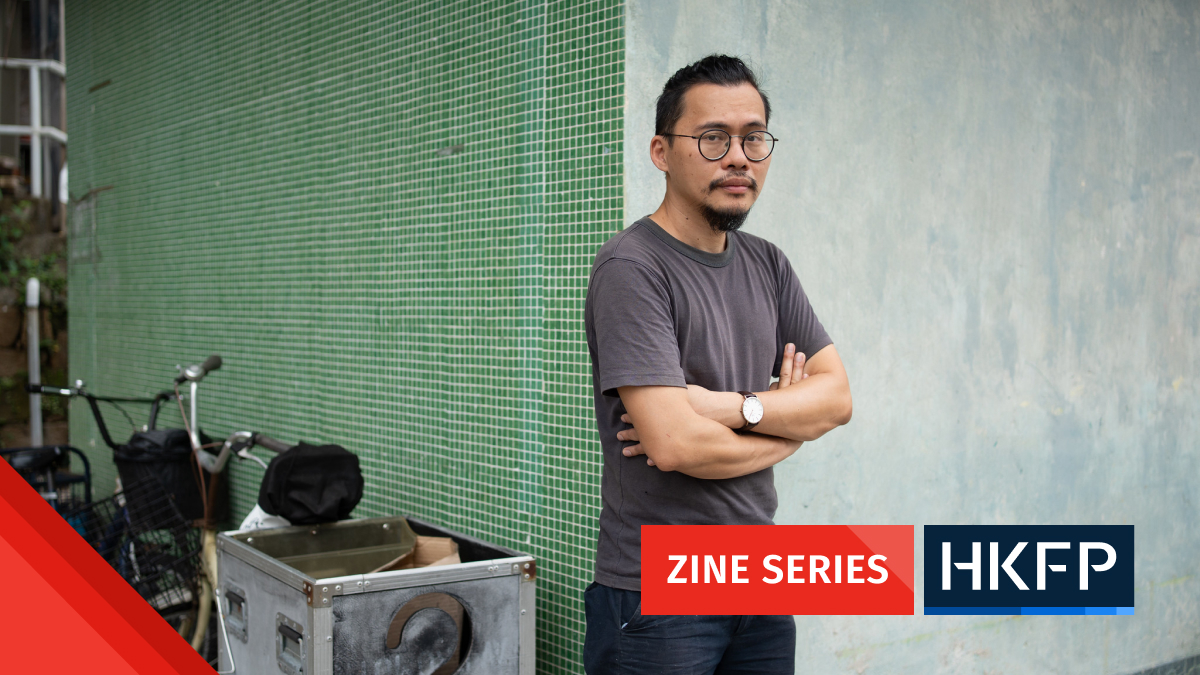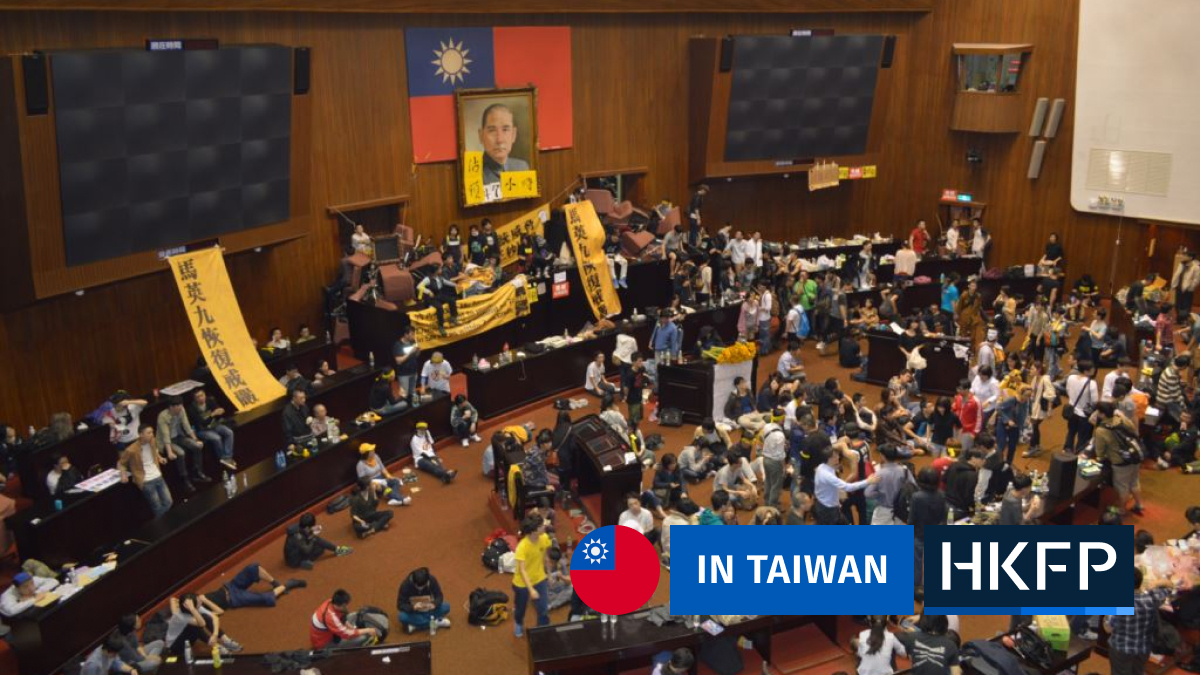One of Hong Kong’s last remaining pro-democracy groups has raised concerns about the city’s impending homegrown national security law, citing the legislation’s potential impact on freedoms.
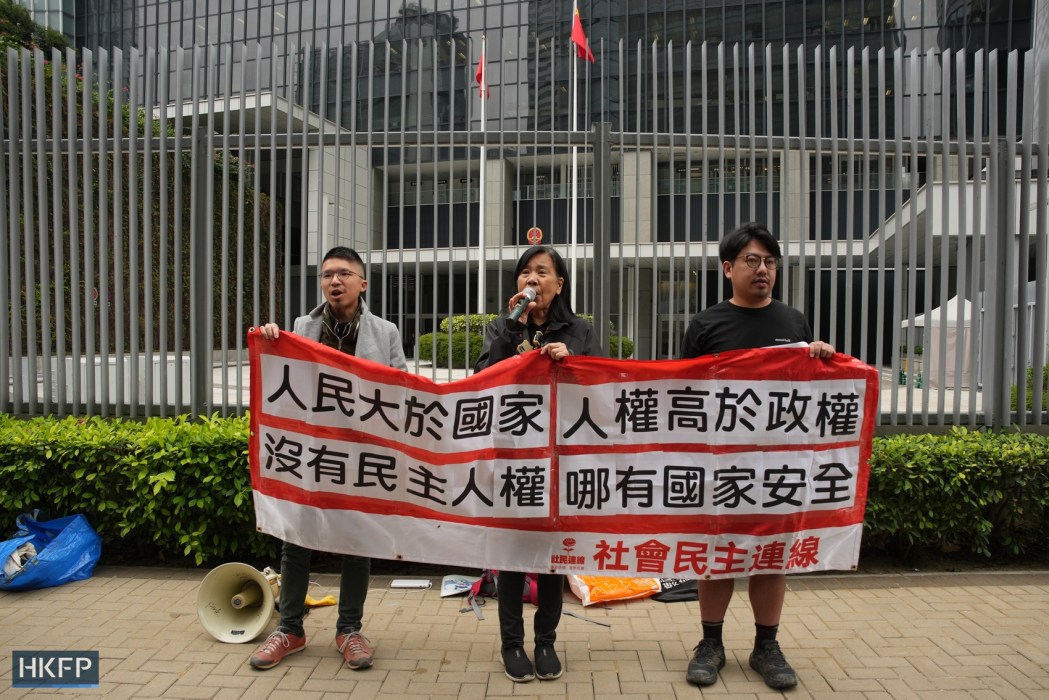
Three members of the League of Social Democrats (LSD), who were stopped and searched by police officers as they approached the government headquarters in Admiralty, held a protest on Tuesday.
They chanted slogans in Cantonese including “people above the nation, human rights above the regime” and “no national security without democracy and human rights” under the watch of a dozen police officers.
Chan Po-ying, chairperson of the group and wife of detained former lawmaker “long hair” Leung Kwok-hung, said the group hoped to voice their views on the legislation of the city’s domestic security law while Beijing’s top official for Hong Kong affairs Xia Baolong was on a week-long visit to the city.
She said the enactment of legislation under Article 23 should only come after the city implemented democratic elections for the city’s leader and legislature, a demand raised by protesters during large-scale demonstrations in 2014 and 2019.
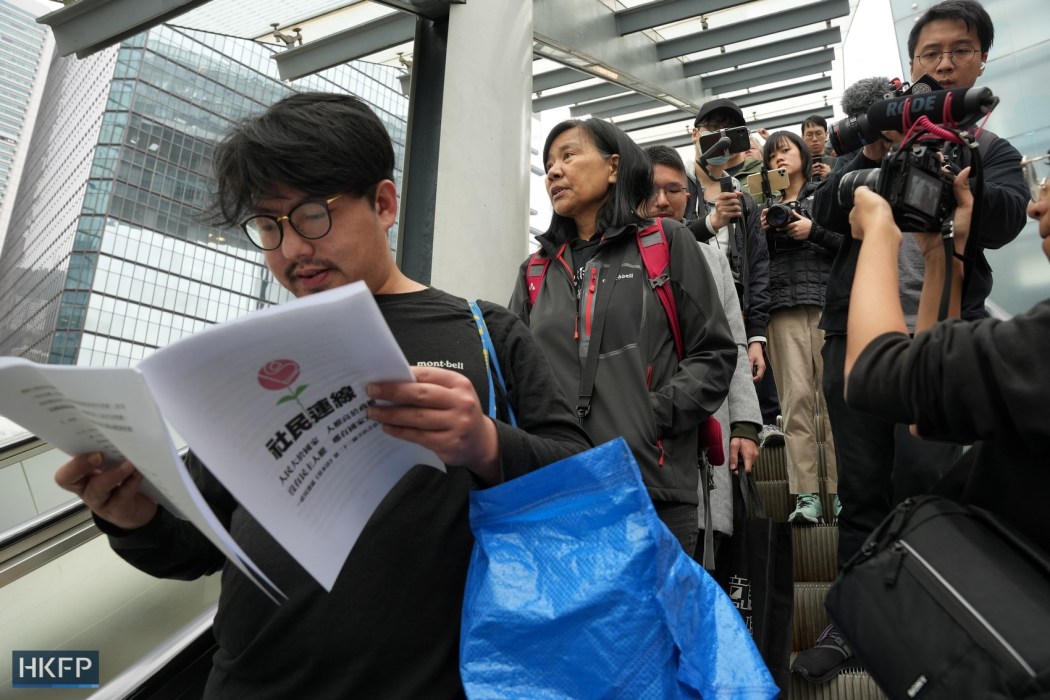
“If the legislation of Article 23 is mapped out by a government and a legislature produced by universal suffrage… there will be no concerns about foreign investment not coming in and Hongkongers not returning,” she added.
Hong Kong is expected to pass a new national security law this year under Article 23 of the Basic Law, which states that Hong Kong must enact its own laws to criminalise acts that endanger national security. Colloquially known as Article 23, the homegrown law is separate from the Beijing-imposed national security legislation, which was enacted in 2020 following the 2019 protests and unrest.
“After the enactment of the [Beijing-imposed] national security law, pan-democrats who joined the primary were arrested and charged,” Chan said, referring to the national security trial of 47 democrats who organised an unofficial election in the hope of obtaining a majority in the city’s legislature.
“Civil society has been dealt a severe blow; human rights and freedom in Hong Kong suffered a setback,” she said, adding that media executives have been jailed and civil society groups have disbanded under the security law.
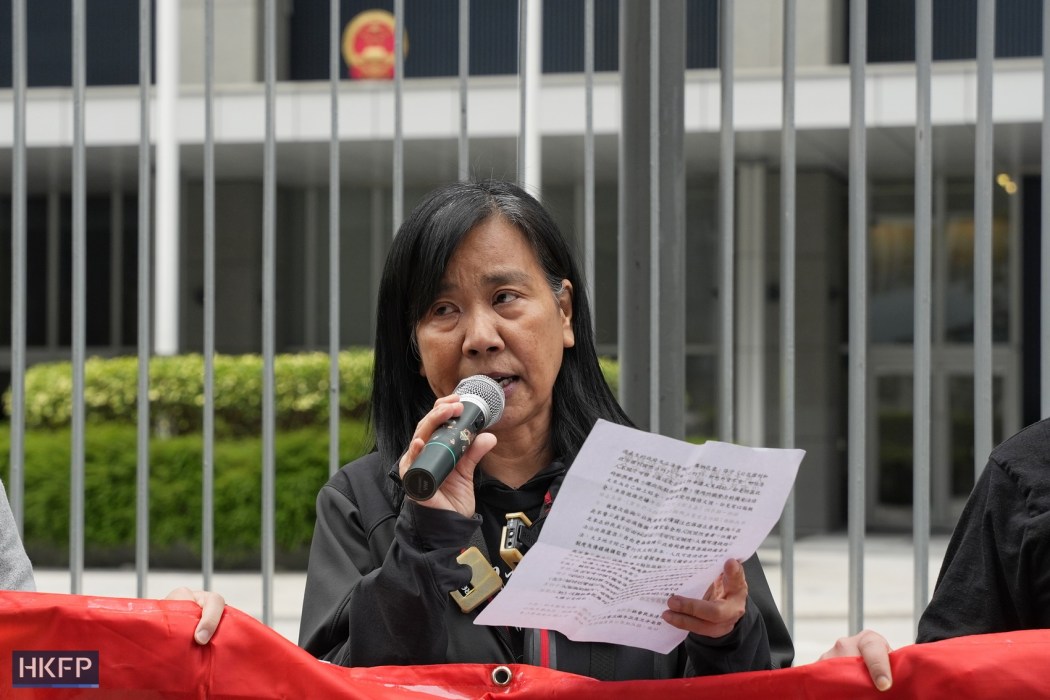
The LSD’s demonstration marked the penultimate day of a month-long consultation period for the legislation. Chief Executive John Lee said earlier this month that the majority of opinions received since the consultation period began were supportive of the impending law, which covers the five types of offence: treason, insurrection, theft of state secrets and espionage, sabotage, and external interference.
The group’s protest was a rare public expression of concern about the potential impact of Article 23, following the Hong Kong Journalists Association’s proposal on Saturday urging the government to provide protection for journalists under the proposed legislation. While overseas activist groups, led by UK-based organisation Hong Kong Watch, have issued a joint statement condemning the security law, opposition in the city has been muted.
In 2003, the last time Hong Kong attempted to legislate Article 23, an estimated 500,000 protesters marched to oppose the law. The city, however, has not seen mass protests since the Beijing-imposed national security law came into effect.
Yu Wai-pan, vice-chairperson of the LSD, expressed concerns over the legislation’s protection of human rights.
He said the authorities’ suggestions to retain the offence of misprision of treason – as opposed to the government dropping the offence in its last legislative attempt in 2003 – would pose threats to relatives and family members of activists in exile.
“If people fail to report treason, would that [lead to] the harassment or even arrest of relatives of activists who have already fled to other countries?” Yu said.
The group also took aim at the government’s proposal to introduce definitions of state secrets following China’s framework. The recommended definitions covered information relating to “major policy decisions” in China and Hong Kong, as well as matters of national defence, diplomacy, and socio-economic development.
They accused the proposed definitions of being “too broad” and said the law could undermine freedom of speech. The group urged authorities to include a public interest defence in the legislation.
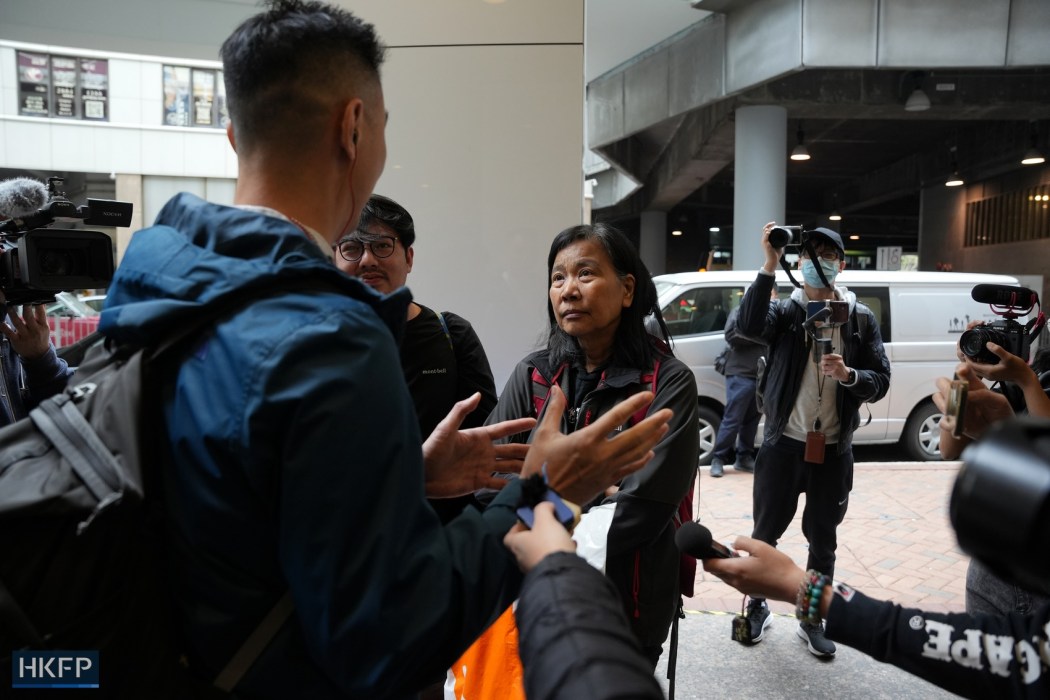
Yu also said that the group had already been arrested for past demonstrations, most recently over plans to protest the “patriot-only” District Council elections last December.
Chan said the group had fear to continue protesting under the security law, adding that other activists and civil society groups were no longer vocal.
“It seems that we are the only organisation to express opinions publicly through demonstrations,” Chan said.
Annual budget
The group’s protest came a day before the city’s finance chief gives the annual budget address, which will outline Hong Kong’s upcoming spending plans. The city expects a deficit of more than HK$100 billion for a second consecutive year.
In a handout given to reporters, the LSD said the city’s annual spending on social welfare lagged behind neighbouring Singapore and South Korea.
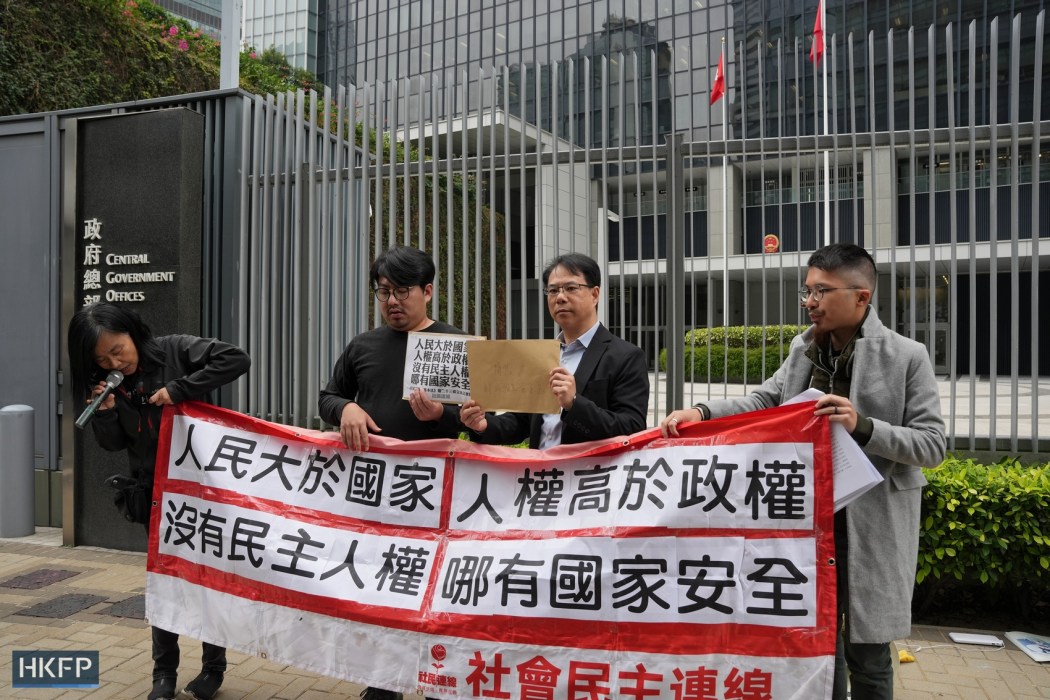
The group said the government’s figures showing moderate inflation and low unemployment rate failed to capture the fact that Hongkongers were travelling across the border to mainland China, where they could save money on everything from daily necessities to medical services to save money.
The LSD added that it was difficult for the Legislative Council, which no longer has an effective opposition following the introduction of “patriots-only” screenings, to reflect Hongkongers’ views.
Chan also called on authorities to give cash handouts of HK$5,000 to residents. Unlike previous years, when the government issued consumption vouchers to boost the Covid-hit economy, the finance chief is not expected to announce handouts this year.
Support HKFP | Policies & Ethics | Error/typo? | Contact Us | Newsletter | Transparency & Annual Report | Apps
Help safeguard press freedom & keep HKFP free for all readers by supporting our team

LATEST FROM HKFP
HKFP has an impartial stance, transparent funding, and balanced coverage guided by an Ethics Code and Corrections Policy.
Support press freedom & help us surpass 1,000 monthly Patrons: 100% independent, governed by an ethics code & not-for-profit.
Support HKFP | Policies & Ethics | Error/typo? | Contact Us | Newsletter | Transparency & Annual Report | Apps
Help safeguard press freedom & keep HKFP free for all readers by supporting our team

Original reporting on HKFP is backed by our monthly contributors.
Almost 1,000 monthly donors make HKFP possible. Each contributes an average of HK$200/month to support our award-winning original reporting, keeping the city’s only independent English-language outlet free-to-access for all. Three reasons to join us:
- 🔎 Transparent & efficient: As a non-profit, we are externally audited each year, publishing our income/outgoings annually, as the city’s most transparent news outlet.
- 🔒 Accurate & accountable: Our reporting is governed by a comprehensive Ethics Code. We are 100% independent, and not answerable to any tycoon, mainland owners or shareholders. Check out our latest Annual Report, and help support press freedom.
- 💰 It’s fast, secure & easy: We accept most payment methods – cancel anytime, and receive a free tote bag and pen if you contribute HK$150/month or more.
MORE Original Reporting
HKFP has an impartial stance, transparent funding, and balanced coverage guided by an Ethics Code and Corrections Policy.
Support press freedom & help us surpass 1,000 monthly Patrons: 100% independent, governed by an ethics code & not-for-profit.





